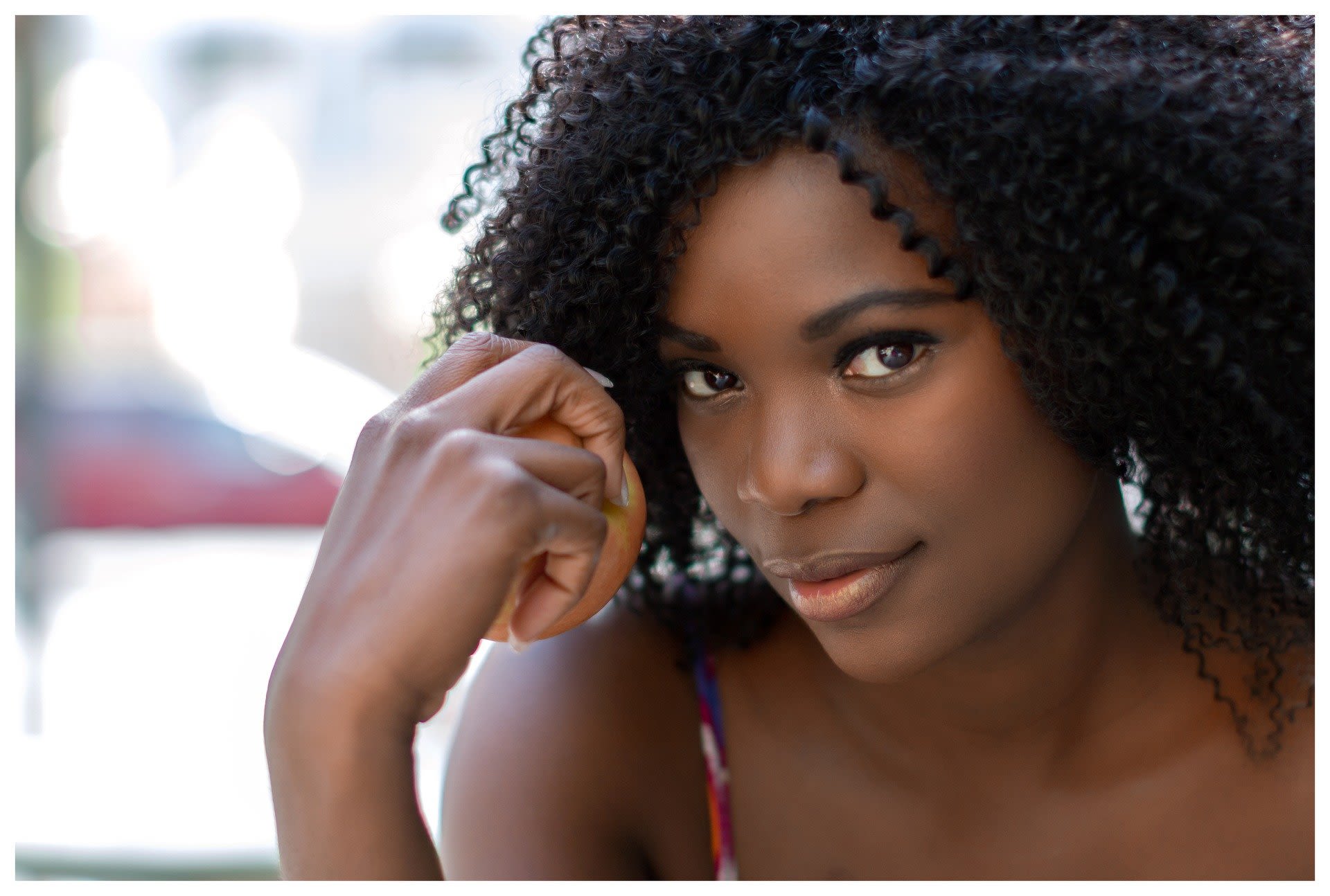"My hair, my choice, my crown."
Black women and their hair before, during and after a pandemic
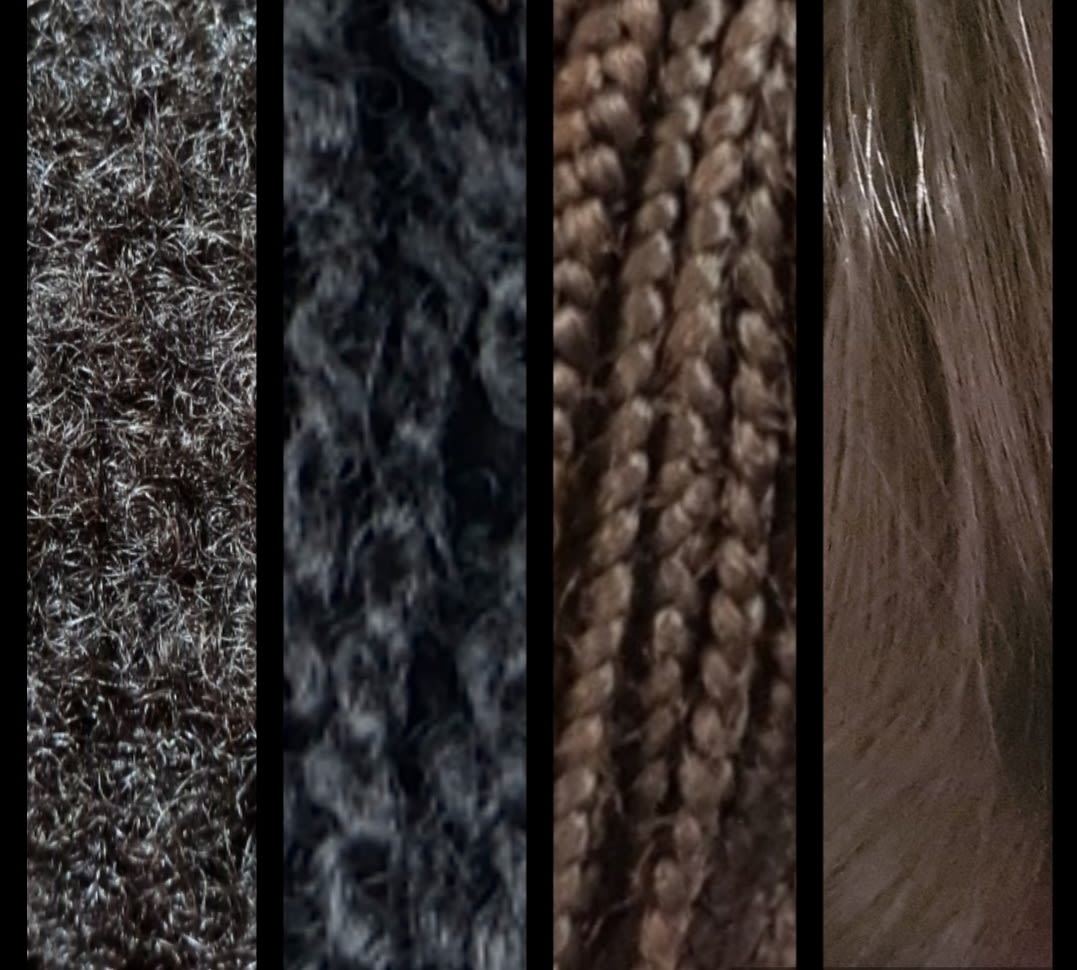
A pause on salon visits
The conversation around Black women and their hair has a long and ongoing history. With its varying curl patterns and textures, each person's hair routine may differ from the next, and going to the salon is not always seen as a luxury, but is sometimes more of a convenience to maintain it. This changed last year with the pandemic; those who had previously relied on an extra pair of professional hands now had to handle everything at home.
Villane Walcott has been a hair stylist in Promise Hair and Beauty Salon in Dagenham, East London, for the past five years.
She said: "Business was going exceptionally well, my books were full, I was meeting new people at the salon everyday! Instagram and word of mouth are two very powerful tools that helped my business get enough coverage and supported me and my mother Verona, the head stylist and salon owner."
Then the first lockdown hit.
Villane said: "We ended up being closed for three months and bookings got cancelled or rescheduled. Faith and hope kept us optimistic throughout."
The salon has now been shut three times for each lockdown and the hair stylist is currently in her home country of Jamaica building her clientele there, and she hopes to return to London when the situation improves to work with her clients again.
Villane added: "Most of my clients have natural hair and heavily rely on protective styling such as my braids to keep them going. I know that many of my clients opted for other protective styles (that they could do at home) such as two strand twists, cornrows and wigs until they could get their braids back."
Her advice to Black women taking care of their hair at home is:
- Keep it moisturised with water and oils that work best for their texture. Her personal favourite is Vitamin E oil and rose water.
- Deep condition every two weeks or at least once a month
- Braid it and sleep with a silk-textured bonnet to seal the moisture in and minimise tangles.
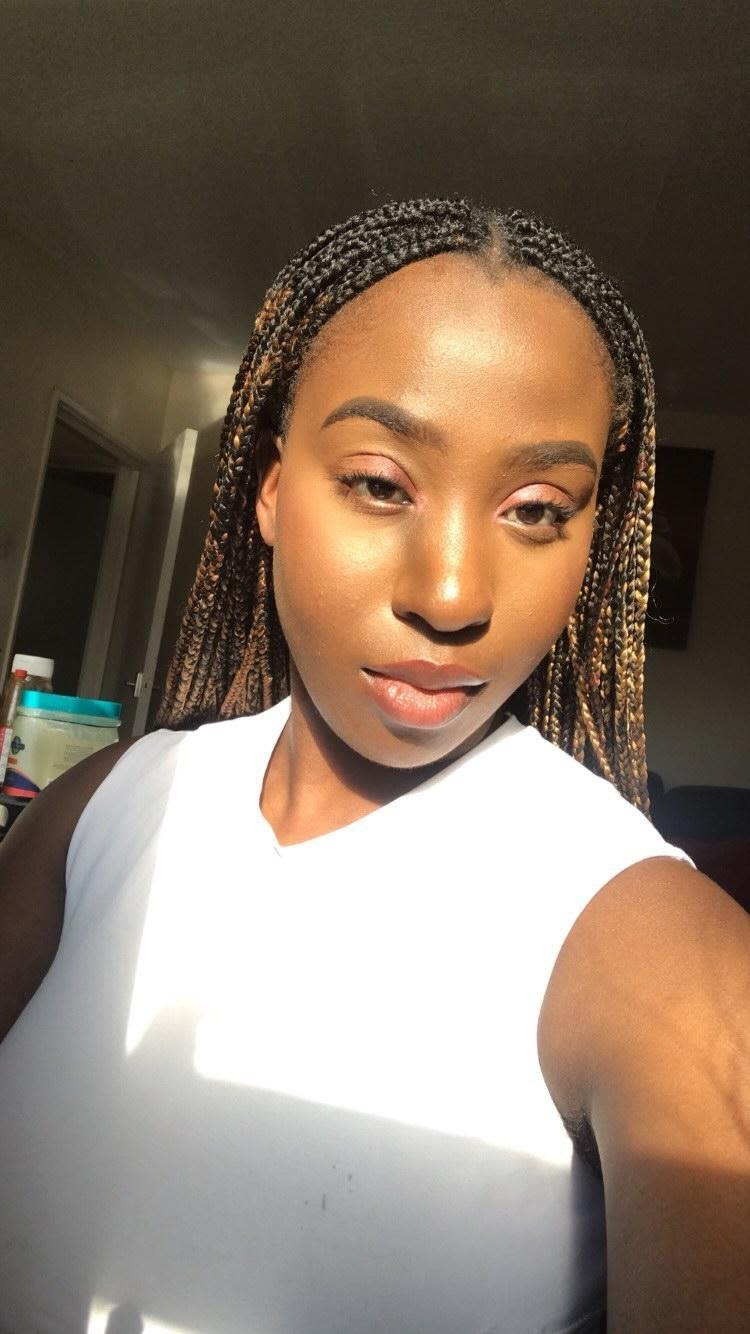
Villane Walcott of Promise Hair and Beauty Salon. Credit Villane Walcott
Villane Walcott of Promise Hair and Beauty Salon. Credit Villane Walcott
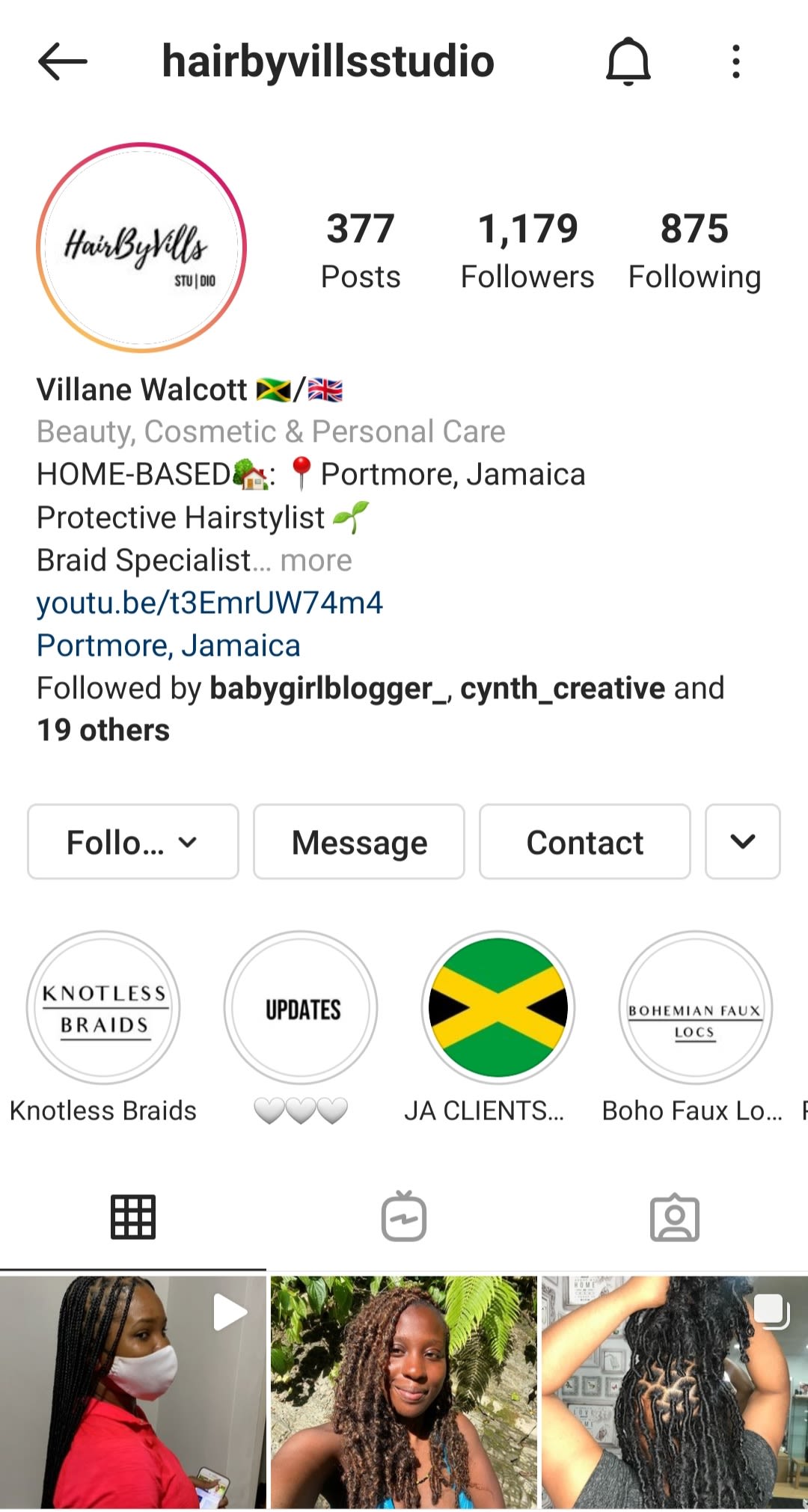
Villane's instragram page. Credit hairbyvillsstudio
Villane's instragram page. Credit hairbyvillsstudio
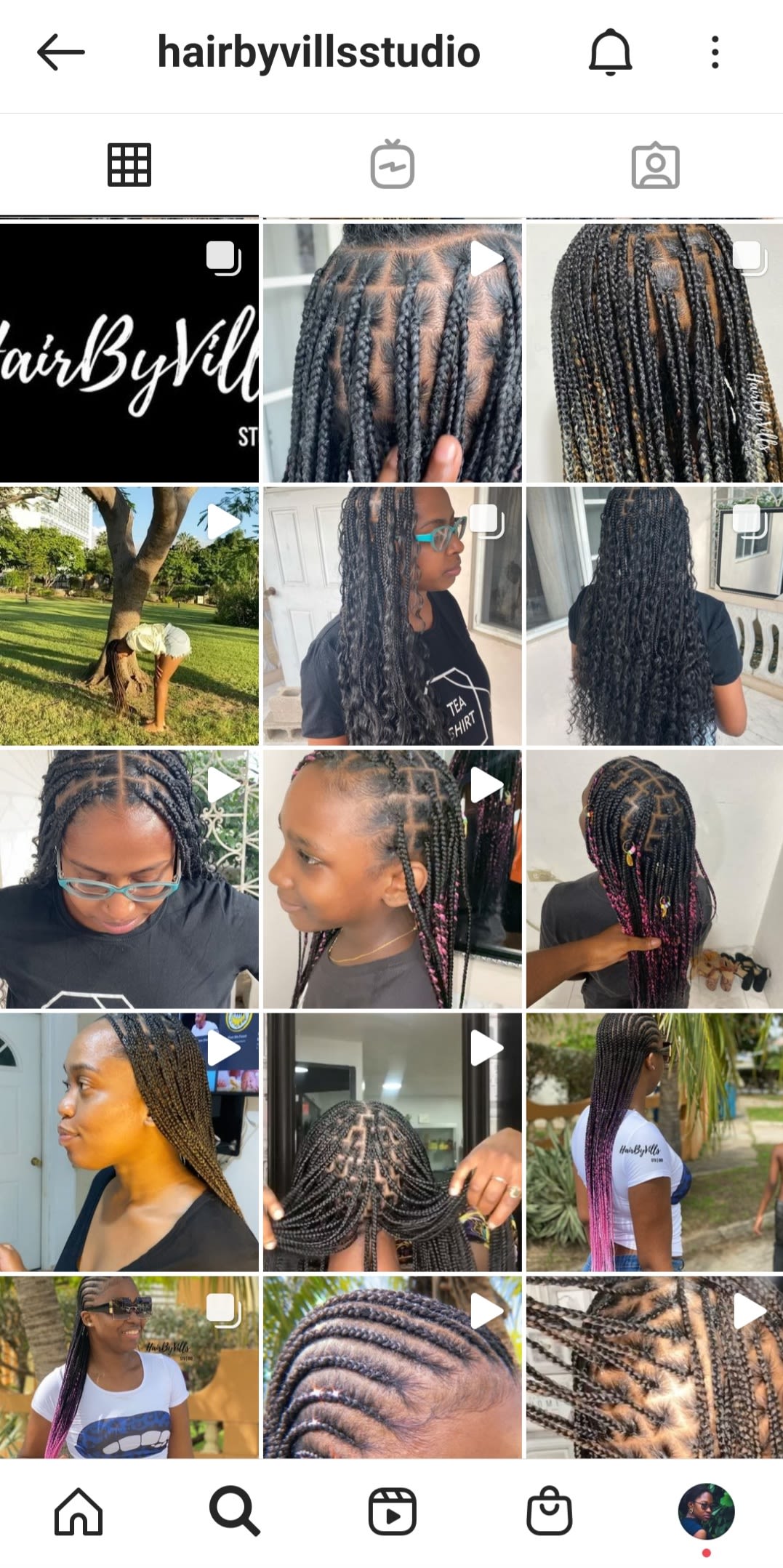
Some of Villane's work. Credit hairbyvillsstudio
Some of Villane's work. Credit hairbyvillsstudio
Ruby Williams
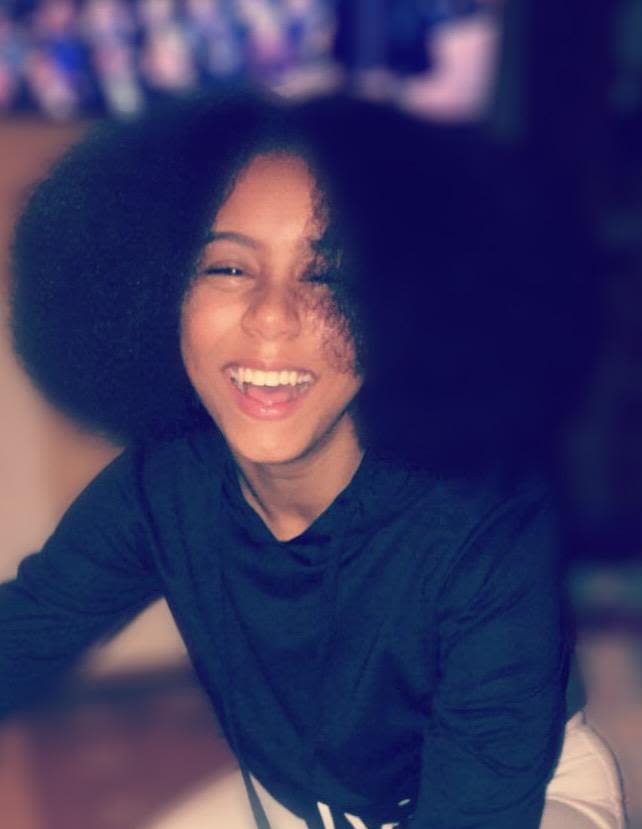
This is Ruby Williams.
Now 19 and at university, she has been braiding her hair in cornrows and occasionally uses wigs for length-retention. In between lockdowns Ruby was able to have a trim at the salon, but was otherwise unrestricted as she mostly did her hair at home before the pandemic.
Her teacher at The Urswick School in Hackney said her Afro was too big and she was sent home repeatedly during her GCSEs from the age of 14. The school also used an image of her with straightened hair in Year 7 for the the Year 11 yearbook. Things came to a head in February last year when The Equality and Human Rights Commission backed Ruby and she received £8,500 in an out of court settlement. As part of the settlement the school could not comment further on Ruby’s particular case, but has since changed its policy, stating on the website that some hairstyles may be more closely connected to specific ethnicities and religions than others, which will be considered when deciding if it is appropriate for school.
When Ruby was at nursery her school let her keep the book I Love My Hair by Natasha Anastasia Tarpley as it helped her realise the versatility of her hair, and her mother learnt to do different styles on her.
Ruby said: “I remember having a few thoughts as a young child, asking why I couldn’t have hair like my mum, as it seemed so easy to comb. I soon got over that and enjoyed my hair until I was 10 or 11, when I started asking if I could get it straightened.”
After using straighteners and dip-dye between 12 and 13, her hair started breaking. By then the natural hair movement was much more prevalent, and she found plenty of help online through blogs and YouTube videos, embracing her Afro hair.
“I realised it was just as beautiful as any other hair type”, she said. “I knew they were wrong but I still felt like my hair was somehow a ‘problem’ because the school’s reaction to it was causing me and my family so much stress! Since leaving the school in 2018, I have been able to fall in love with my hair again.”
Ruby's story has reached many. A friend of her mother, Kate Williams, saw a child who heard the news and said he also wanted to wear his hair in an Afro to school. Ruby has since been featured in a Channel 4 documentary- Hair Power: Me and My Afro, and was a judge for World Afro Day last year. Progress has also been made with The Halo Code created by The Halo Collective, a pledge schools and businesses can sign, allowing people to wear their hair in Afros and other styles like braids and cornrows. The Sutton High School GDST in South London, where six percent of their students have Afro hair, became the first school in the UK to adopt it in December 2020.
Headteacher Beth Dawson said: “We were keen that the girls we have here from different backgrounds can celebrate their individuality. We felt that having a uniform policy that supported them to do that, specifically to celebrate their cultural heritage through their hair, is a positive thing to do.”
Ruby's advice to other black females struggling to love their hair is to make use of the information available in books, on blogs and YouTube videos, embrace protective styles, wrapping it to retain moisture, and to do wash-days when they have the energy and time to give it their full attention.
“What I love most about my hair is its versatility and how different choices can completely change my entire look", she added. "I feel empowered now to make decisions about my hair, rather than feeling policed because of it. I hope that by the time I have children, this is no longer an issue in the UK. My hair is my crown but so are my protective styles…it just depends on my mood and situation. My hair, my choice, my crown.”
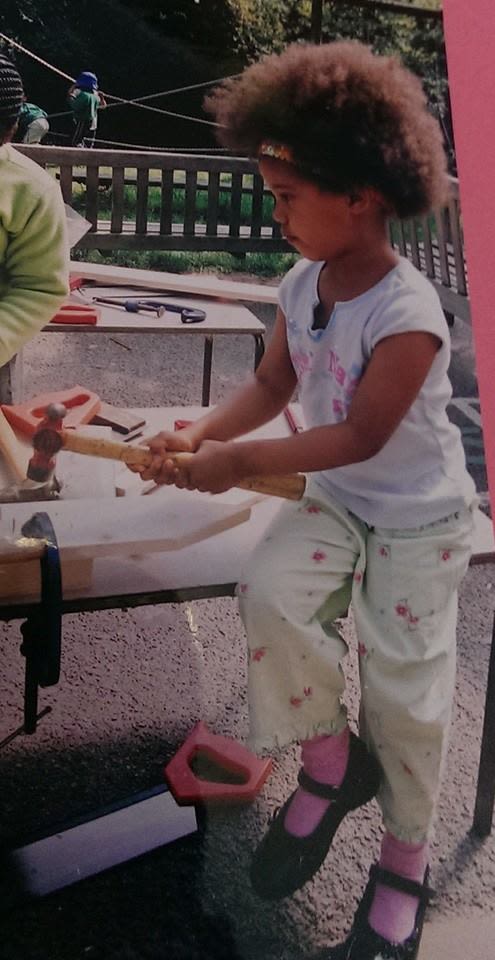
Ruby in nursery. Credit Williams family
Ruby in nursery. Credit Williams family
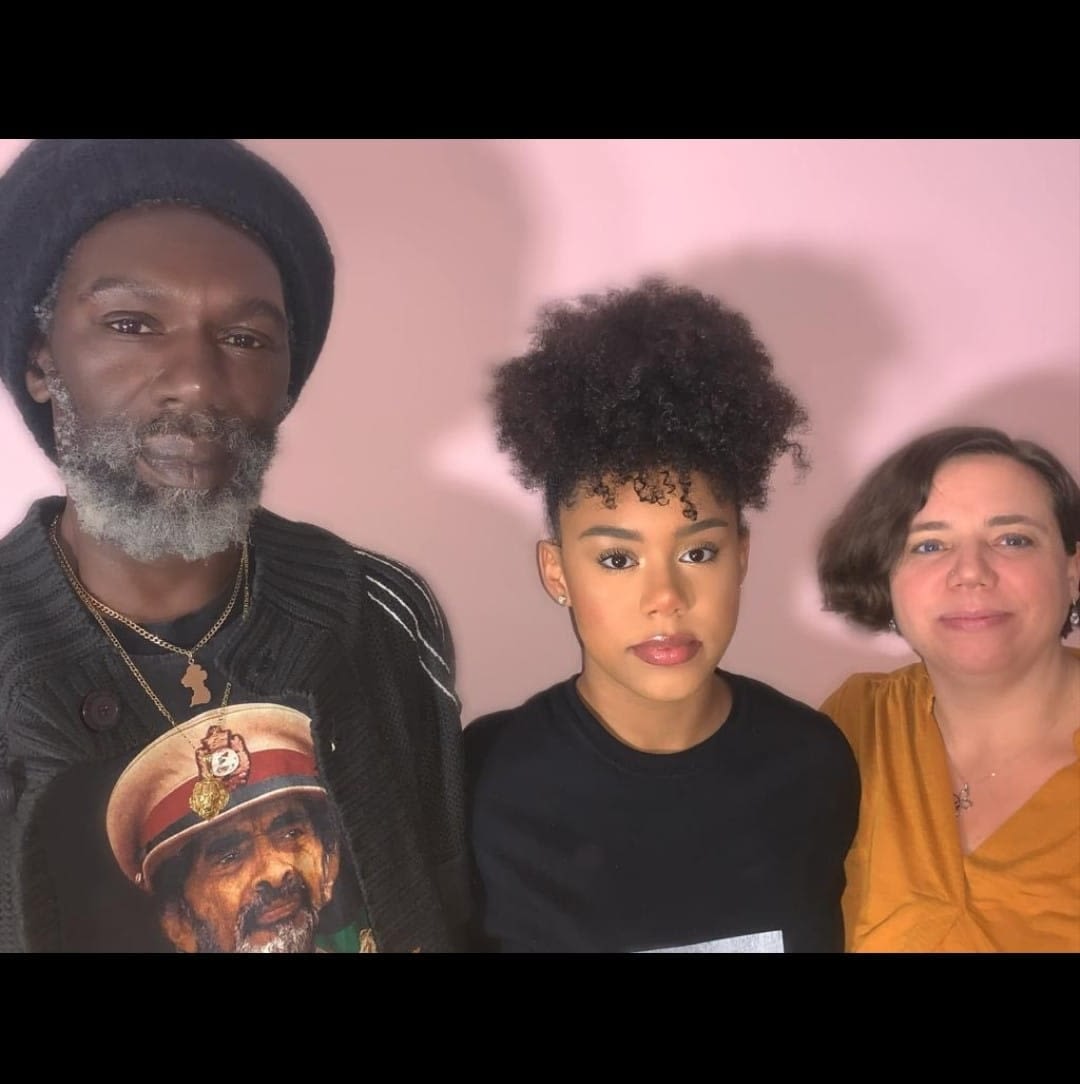
Ruby with her parents Kate and Lenny Williams. Credit Williams family
Ruby with her parents Kate and Lenny Williams. Credit Williams family
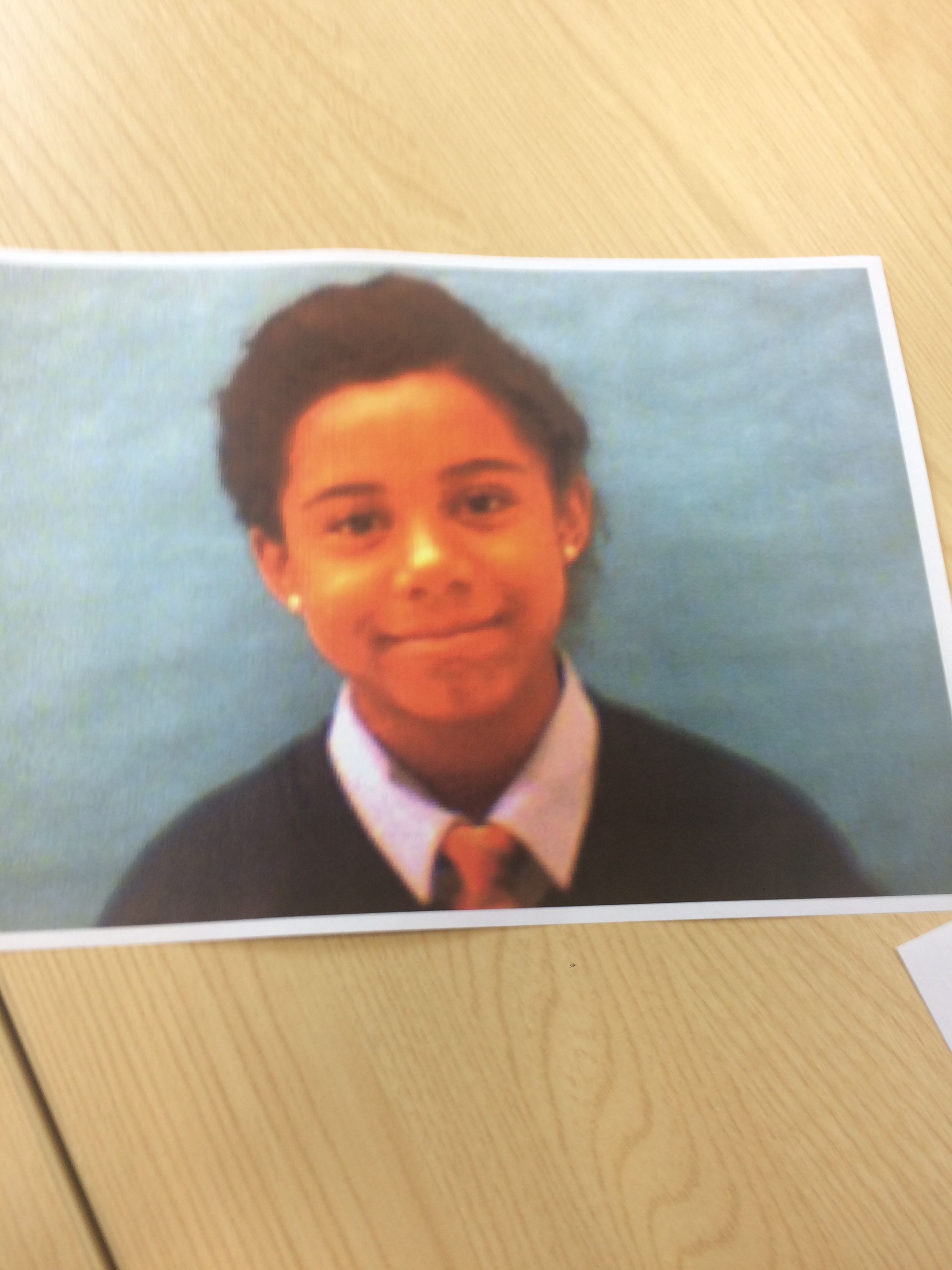
Ruby in Year 7 when she used to straighten her hair. Credit Williams family
Ruby in Year 7 when she used to straighten her hair. Credit Williams family
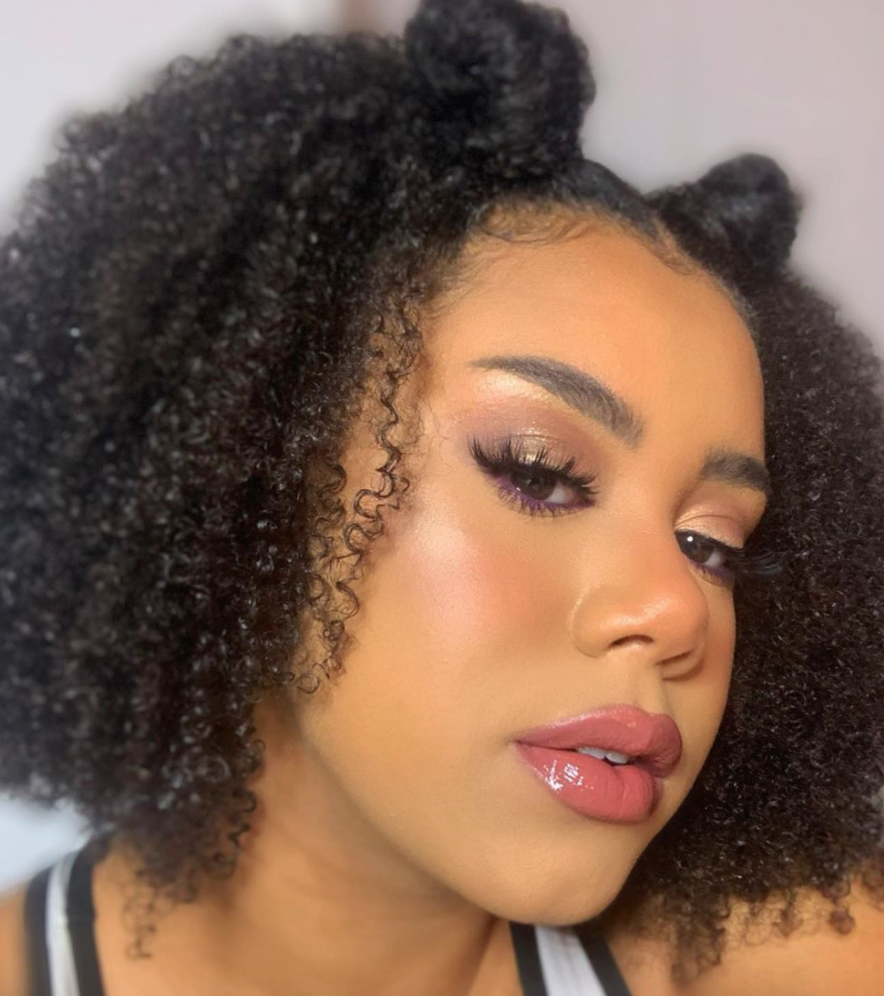
All glammed up: Ruby's Afro. Credit rpwbeauty
All glammed up: Ruby's Afro. Credit rpwbeauty
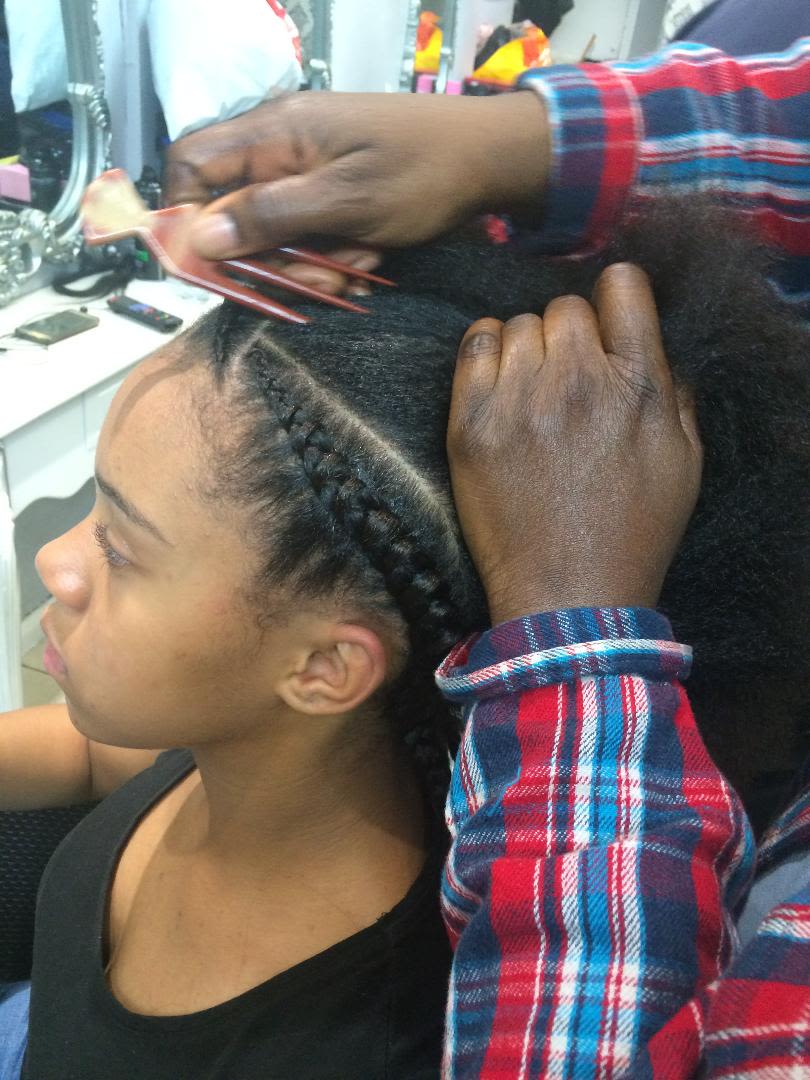
Ruby having Ghana braids- a type of protective hairstyle. Credit the Williams family
Ruby having Ghana braids- a type of protective hairstyle. Credit the Williams family
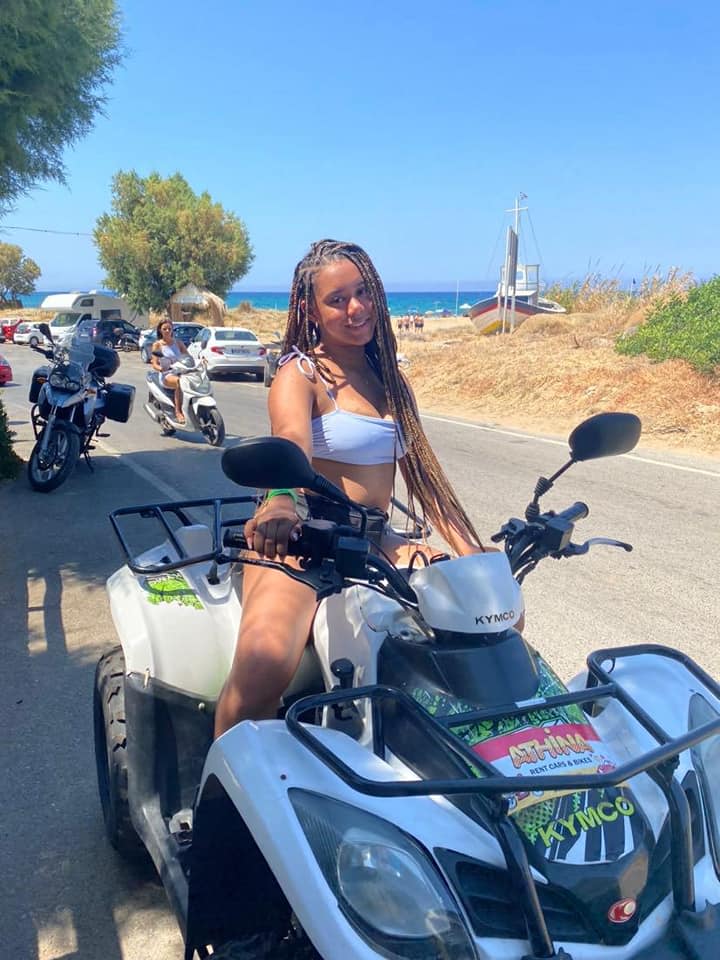
Ruby with braids in Greece last year when travel restrictions were eased. Credit Williams family
Ruby with braids in Greece last year when travel restrictions were eased. Credit Williams family
A brief history
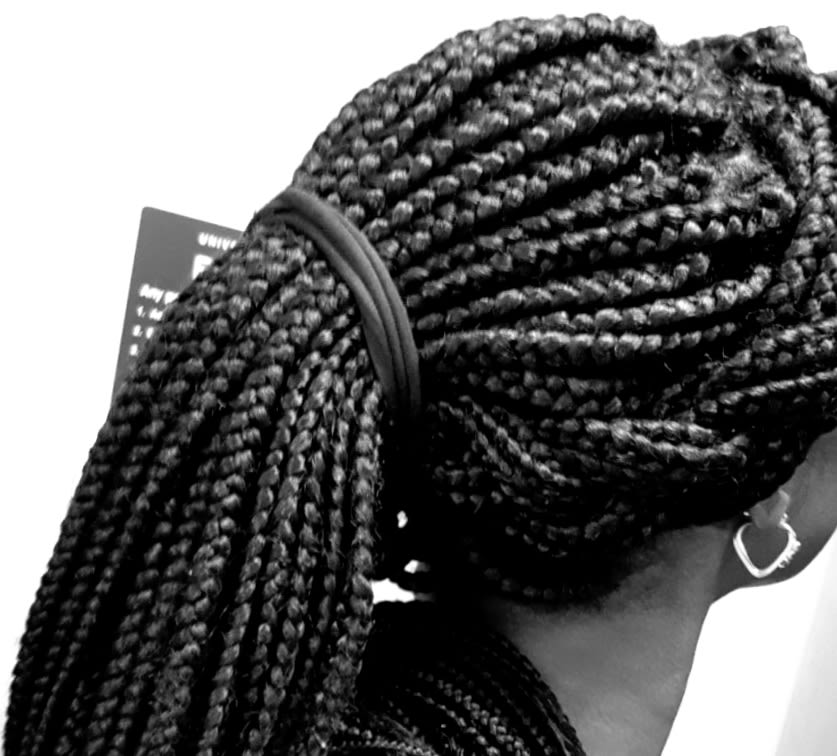
From curly to straight, and back
Relaxers in particular became popular in the 1970s with the aim of permanently straightening the hair, breaking down its proteins to stretch the curls out. The main ingredient in these is sodium hydroxide or calcium hydroxide, found in bleach, weakening and breaking the hair over time.
Even worse is the serious health concerns attached. In 2018, The Journal of Environmental Research revealed that 78% of products marketed towards and used by Black women contained chemicals such as phthalates and parabens. These toxins disrupt the hormone system and can lead to:-
- Asthma
- Fibroids
- Premature births
- Failed IVF attempts
- Early menopause
- Cancer
Products with these toxins are being sold in the US and some, but not all, are banned in the UK under EU regulations.
A ‘natural hair movement’ of Black women choosing to stop using relaxers has gained major traction over the past decade. With that, there has been a push for more natural hair care- not just natural in the sense that they work with the natural hair texture, but also that they are made with natural ingredients and are toxin free. During lockdowns, many Black women who relied on salons for professional relaxers transitioned back to their natural hair, and businesses like Afrocenchix helped support women on the journey.
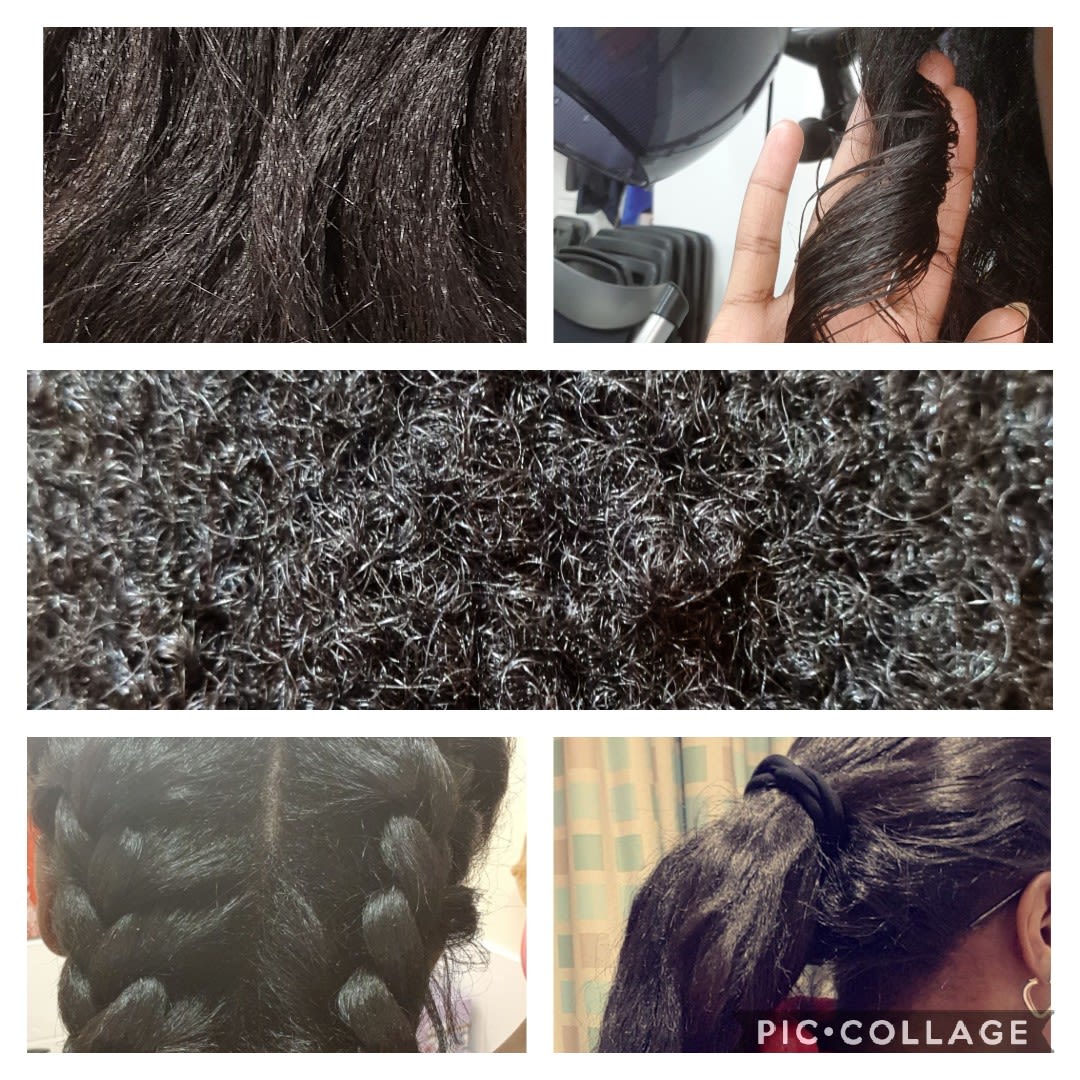
Chemically straightened hair versus the natural Afro texture
Chemically straightened hair versus the natural Afro texture
Afrocenchix
An award-winning natural hair care brand
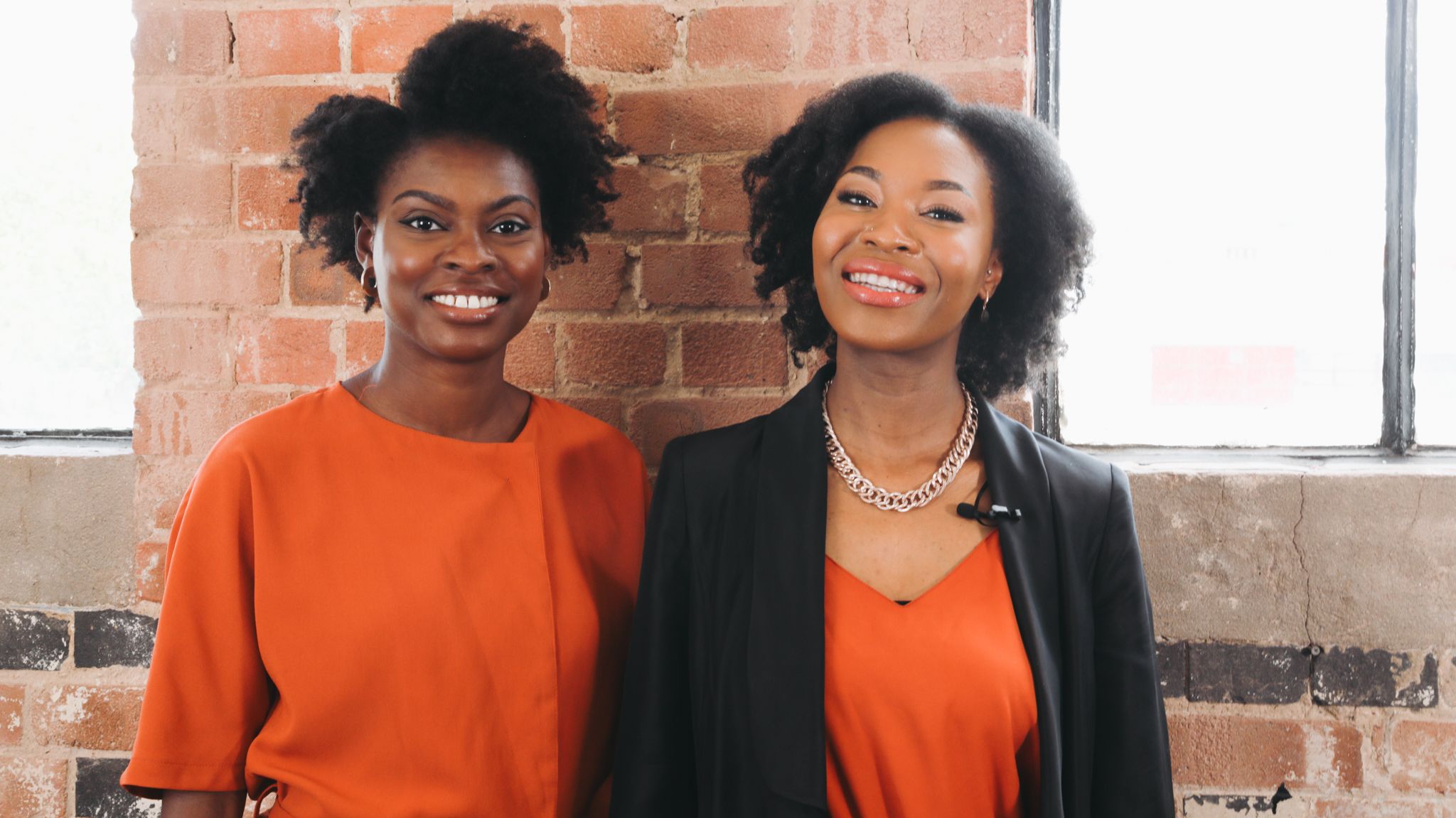
Full credit for all images used in this video go to Afrocenchix
Full credit for all images used in this video go to Afrocenchix
Ethics, sustainability and health
In 2020, Afrocenchix sold over 27,000 bottles, a five-fold increase in sales compared to 2019, and part of this was due to the number of Black women unable to get relaxers during lockdown. At the same time, the ‘Under the Wig Set’ was launched, proving popular among those maintaining their natural hair in a protective style under a wig, and they also have ‘The Newly Natural Set’ for those who recently stopped using relaxers. Co-founder Rachael Twumasi-Corson added that out of their 10,000 customers and community of over 50,000 Black women, every week someone is shocked about the content of relaxers which they previously did not know about. She believes awareness is increasing but not enough people know the truth - yet.
Rachael said: “It’s fantastic to be able to make a real difference to the health and wellbeing of black women. All we do is focus on making the world a better place with ethical and sustainable products and trying to make sure that people don’t have to choose between presenting themselves well in a ‘more professional’ or ‘attractive’ way, and their health.”
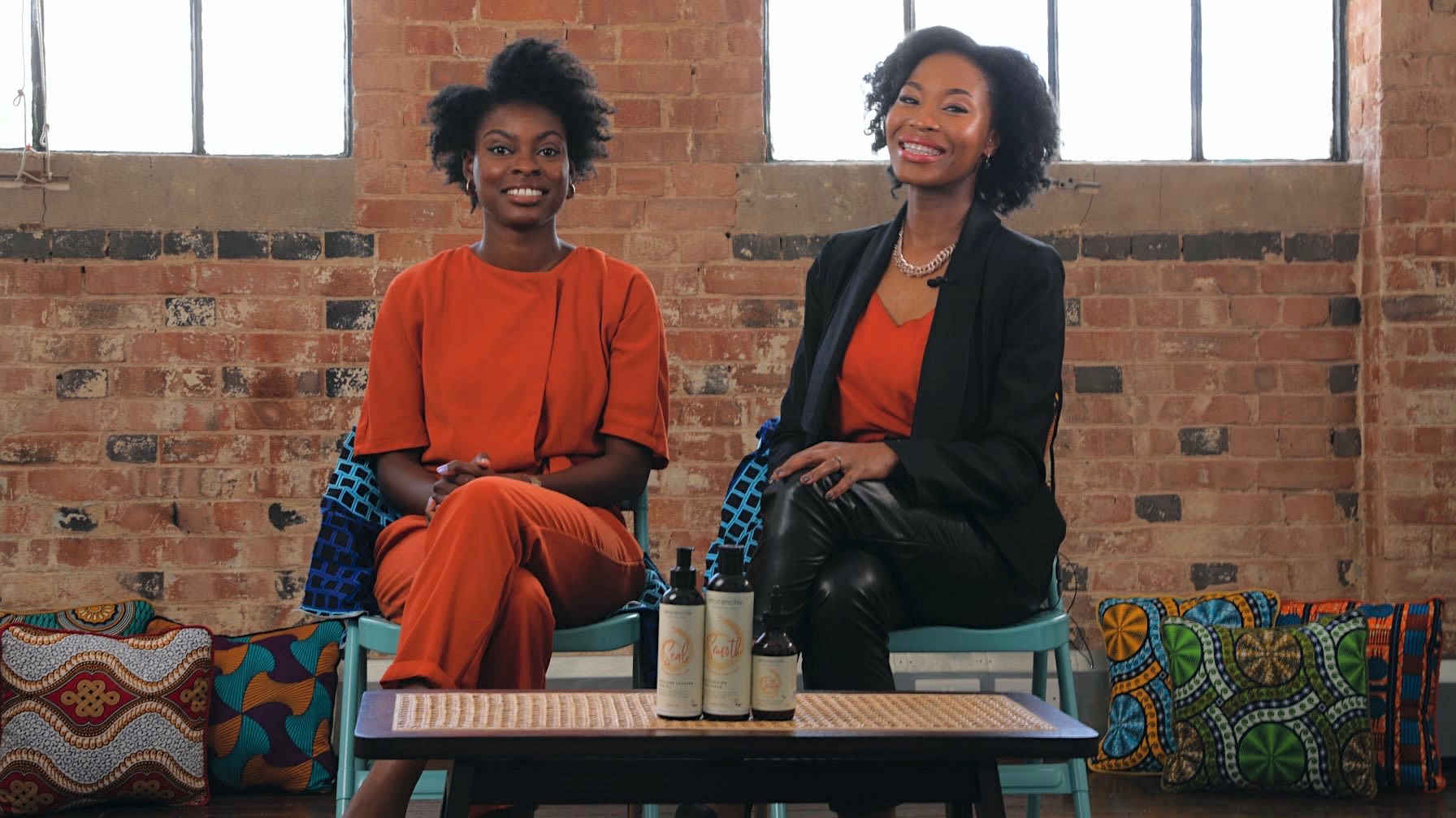
Co-founders Joycelyn Mate (left) and Rachael Twumasi-Corson (right) with some of their products on display. Credit Afrocenchix
Co-founders Joycelyn Mate (left) and Rachael Twumasi-Corson (right) with some of their products on display. Credit Afrocenchix
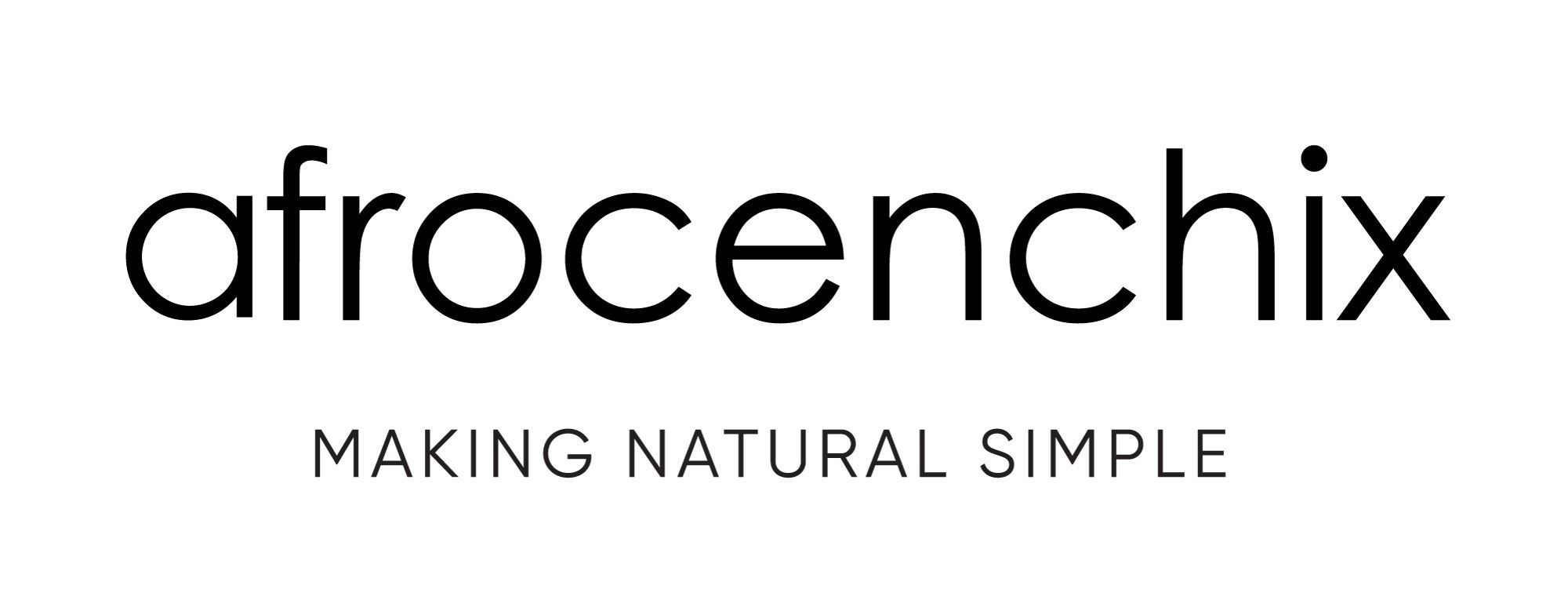
Credit Afrocenchix
Credit Afrocenchix
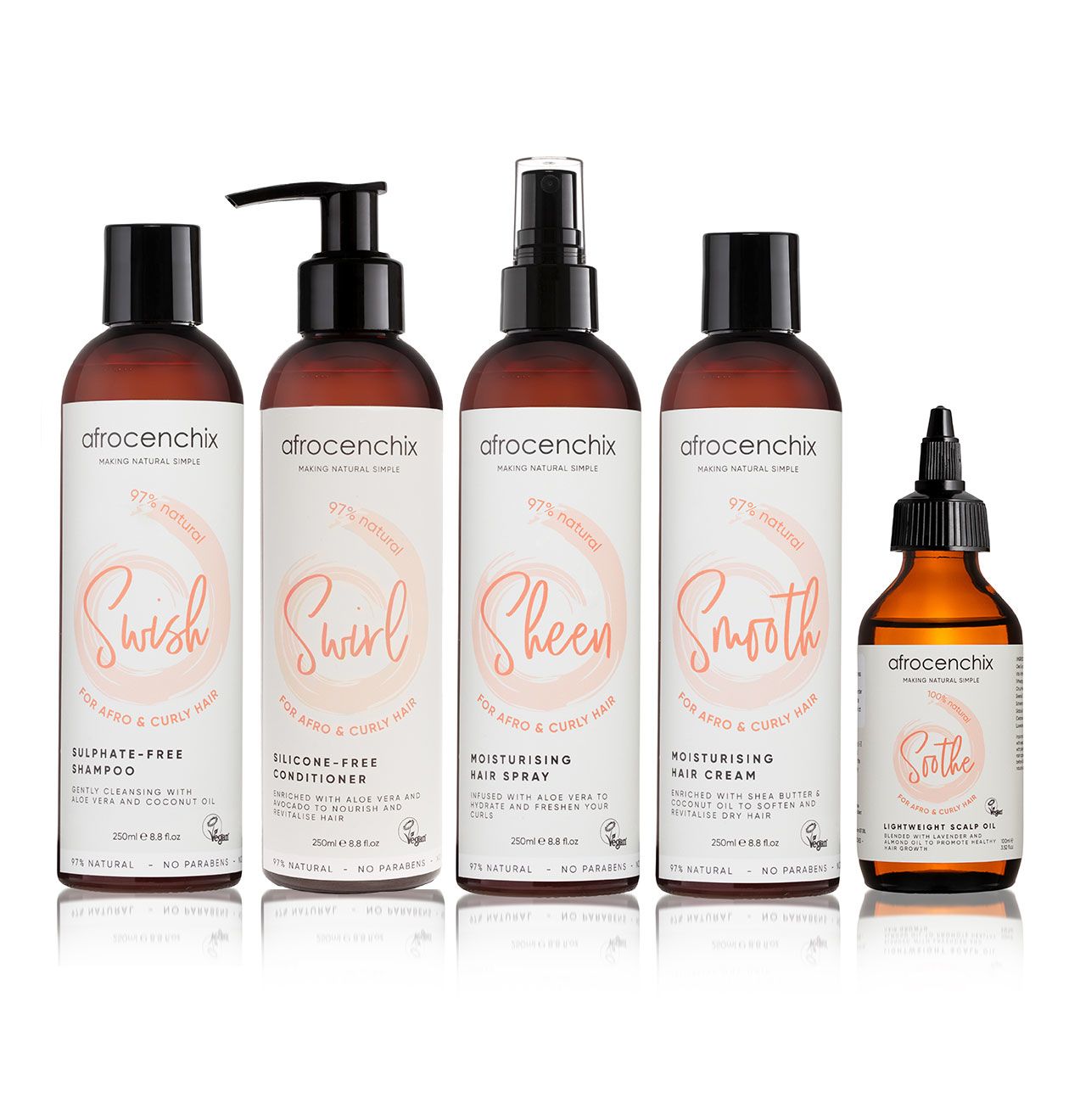
The 'Under the Wig' set, launched in 2020. Credit Afrocenchix
The 'Under the Wig' set, launched in 2020. Credit Afrocenchix
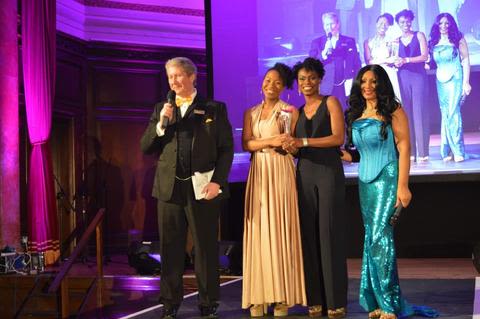
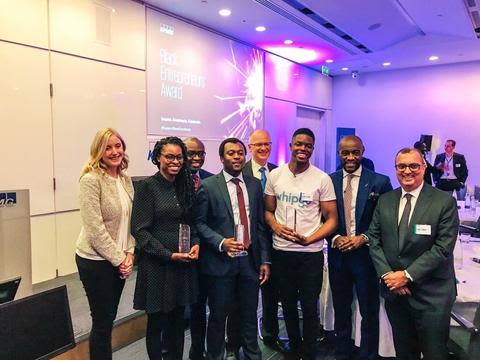
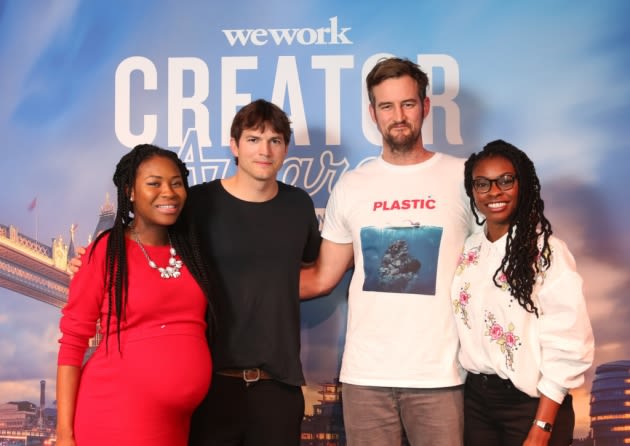
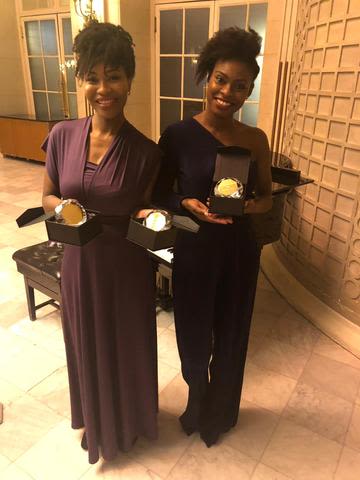

Afrocenchix was ranked the top natural hair care brand in the UK at the Black Beauty and Fashion Awards 2018. Credit Afrocenchix
Afrocenchix was ranked the top natural hair care brand in the UK at the Black Beauty and Fashion Awards 2018. Credit Afrocenchix

Afrocenchix was one of three Black businesses to be awarded £5000 at KPMG's first ever Black Entrepreneurs' Awards, also in 2018. Credit Afrocenchix
Afrocenchix was one of three Black businesses to be awarded £5000 at KPMG's first ever Black Entrepreneurs' Awards, also in 2018. Credit Afrocenchix

The brand won the top prize of £275,000 in the Business Venture category at the WeWork London Creator Awards 2018 and $180,000 at the WeWork Global Creator awards in LA.Credit Afrocenchix
The brand won the top prize of £275,000 in the Business Venture category at the WeWork London Creator Awards 2018 and $180,000 at the WeWork Global Creator awards in LA.Credit Afrocenchix

Rachael (left) and Joycelyn (right) at the PRECIOUS Awards 2019, the leading business awards for women of colour. Credit Afrocenchix
Rachael (left) and Joycelyn (right) at the PRECIOUS Awards 2019, the leading business awards for women of colour. Credit Afrocenchix
Embracing the Afro
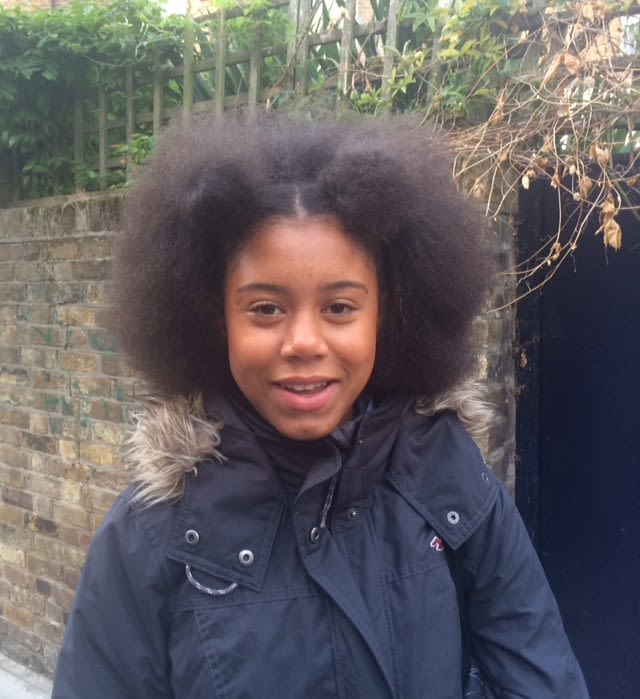
The data from the above quiz was featured on The Halo Collective website, originally sourced from the Good Hair Study by The Perception Institute and The Hair Equality Report 2019 by World Afro Day and De Montfort University.
World Afro Day, celebrated annually on 15 September, was founded in 2017 by Michelle De Leon after she heard her daughter Estelle, singing about her natural hair, and heard the US state of Alabama passed a law on 15 September 2016 allowing employers to deny jobs to people with dreadlocks. It is endorsed by the UN Office of the High Commissioner for Human Rights, has received a Global Excellence Award, and Michelle has been named a Black British Icon and Changemaker for 2021, alongside Marcus Rashford.
She said: "Like a lot of people you are more hands on with your own hair during COVID. We (my daughter and I) like to support Black-owned brands and natural products that come from Africa. I think one of the surprising things is that there are women, adults, with Afro hair who don't know what it feels like, because they had it straightened so young. That is generations of lost knowledge."
“My daughter has had the birth of World Afro Day in her childhood and it's been great to see the changes in society. We could have always just done local things, national things, but it is a global issue. I would love World Afro Day to be like the Olympics of the hair world that people look forward to. The tide is turning and with the UN endorsement it allowed us to see that this is an important, global human rights issue. We are hopeful."
Ruby was a judge on the panel for the Top 10 Model competition held virtually last year, which Michelle and her team agreed would go ahead despite the pandemic.
Ruby said: “We decided that World Afro Day represented our goals as a family, in terms of celebrating Afro hair, challenging discrimination and raising awareness. We got in touch with them and offered ourselves as volunteers. I loved meeting the children and young people and seeing what a positive impact celebrating their hair had on them. I also worked as the make-up artist for their photoshoot and this was a very rewarding experience for me. I’m so excited that teaching unions have joined forces with World Afro Day and I really believe the tide is turning.”
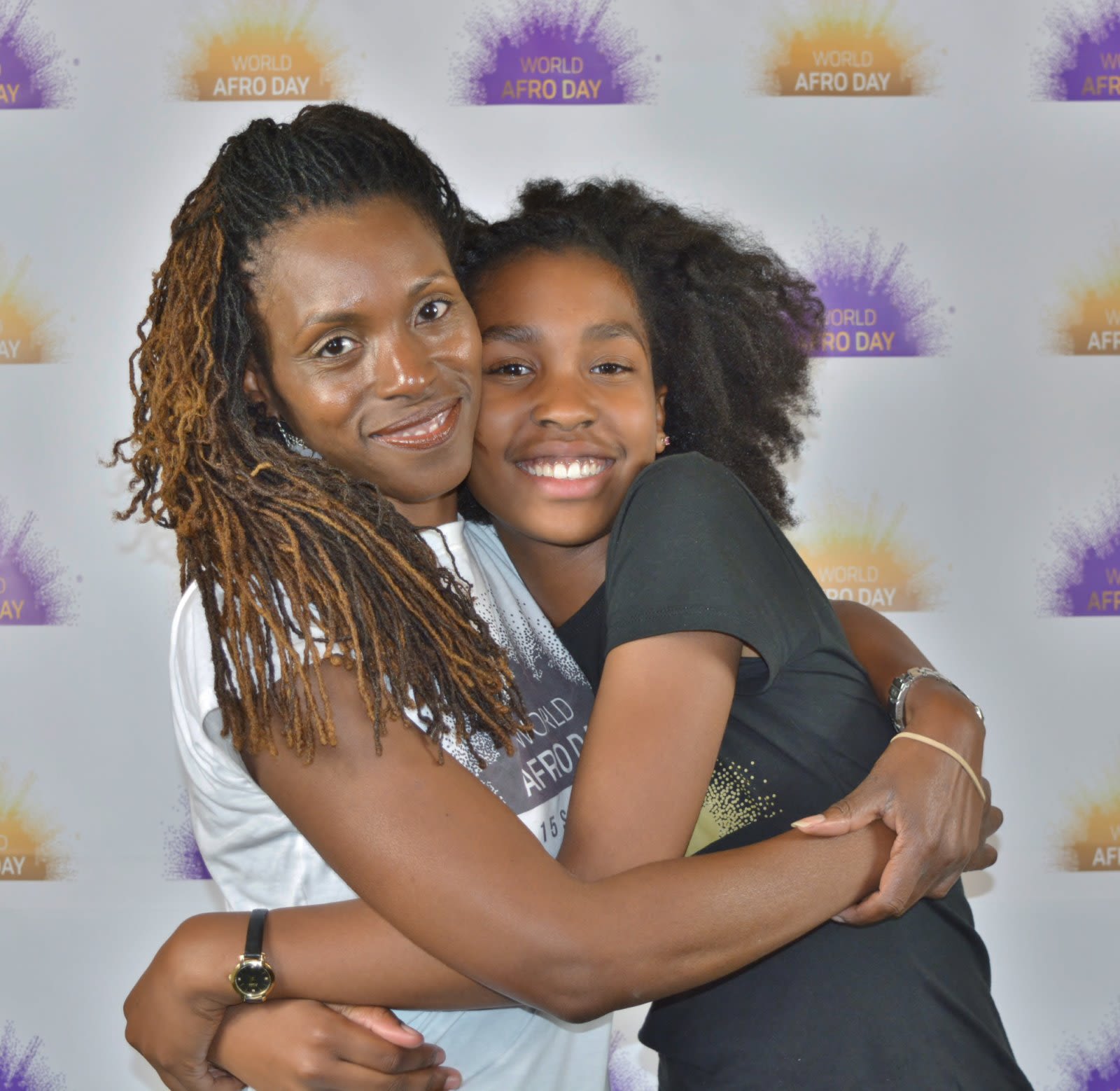
Michelle hugs her daughter, Estelle at the first World Afro Day in 2017- Credit RB Incite Photography
Michelle hugs her daughter, Estelle at the first World Afro Day in 2017- Credit RB Incite Photography
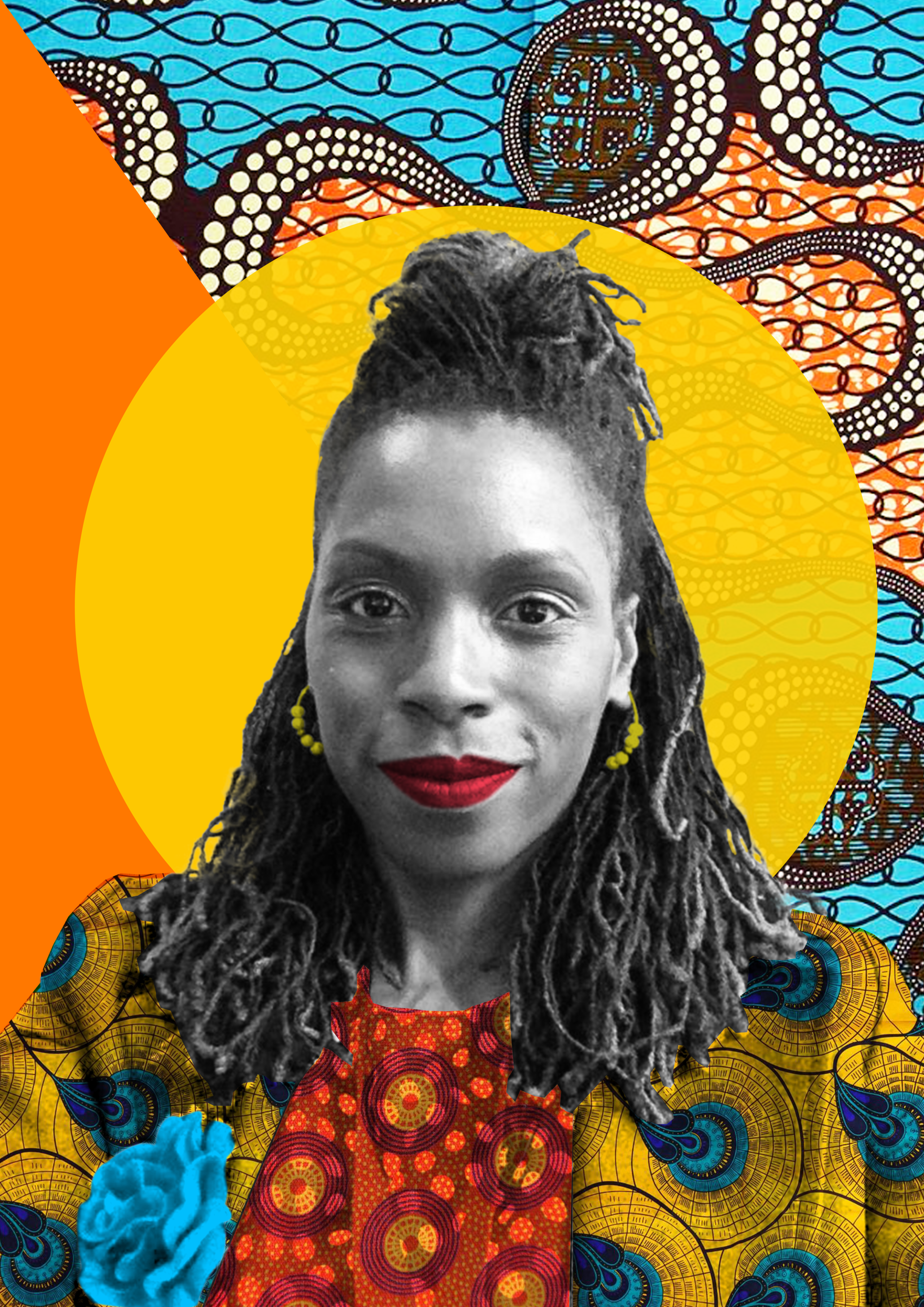
Michelle's feature as a Black British Icon and Changemaker for 2021. Credit Frequency of Love by Zoe
Michelle's feature as a Black British Icon and Changemaker for 2021. Credit Frequency of Love by Zoe
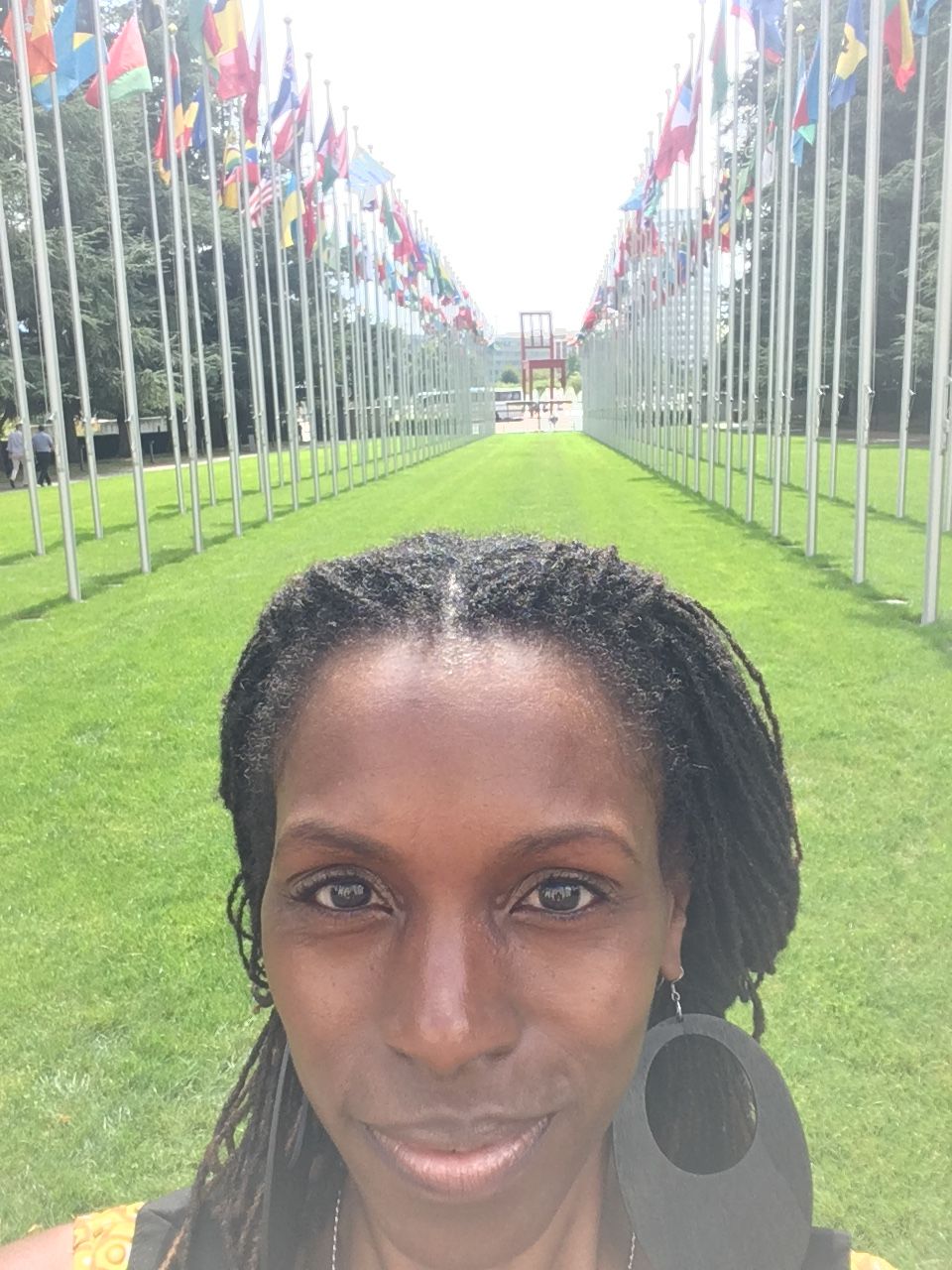
Michelle at the UN, Geneva. Credit Michelle De Leon
Michelle at the UN, Geneva. Credit Michelle De Leon
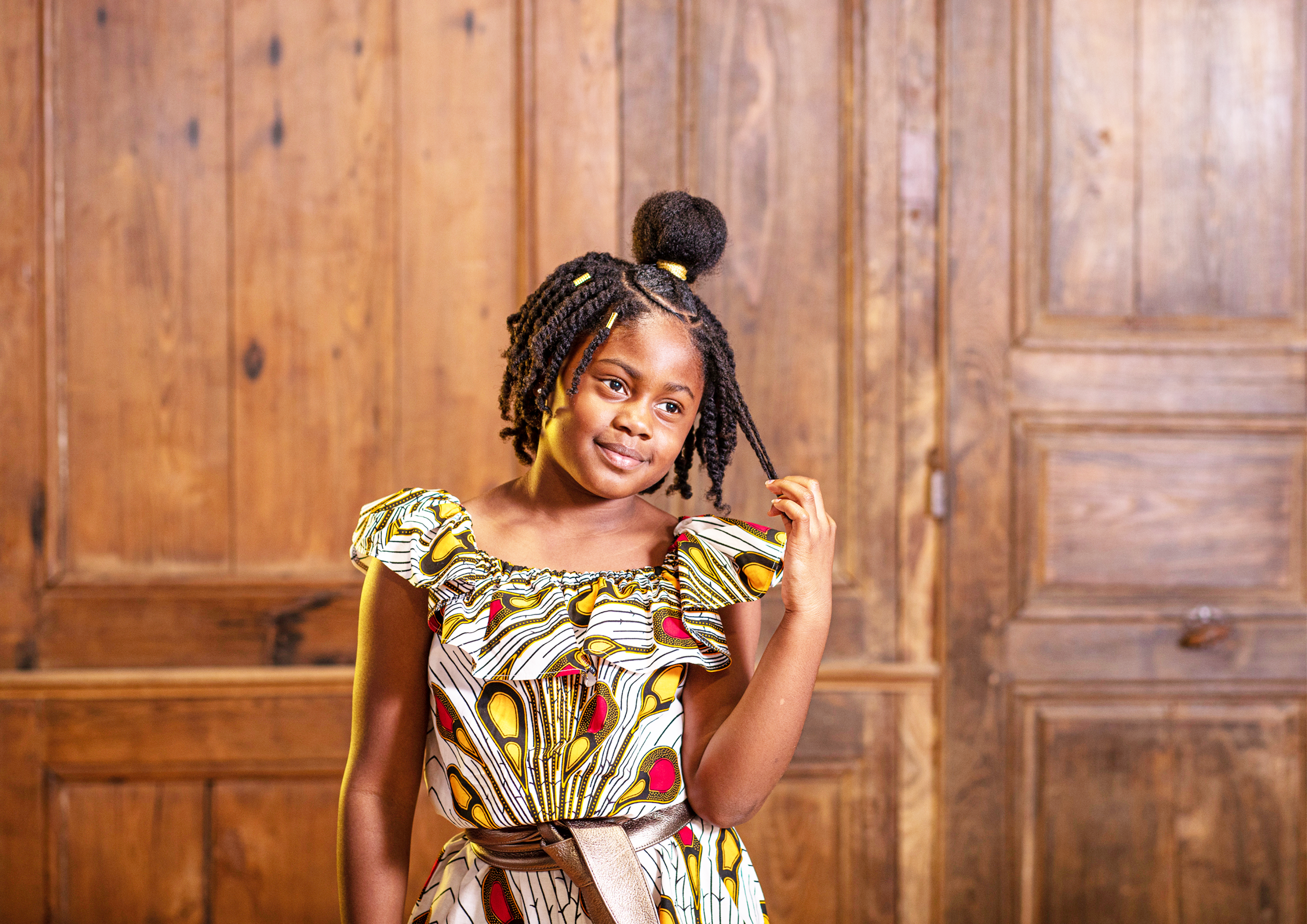
Seven year old T'Zayah -Top Ten Model Winner and ITV News 2020 'WOW' moment. Photography by Alina By. Hair by Dionne Smith and Calixta James, Purely Natural Salon. Make-up by Ruby Williams. Clothes by Gitas Portal and House of Loulee. Styling by Karine Laudort.
Seven year old T'Zayah -Top Ten Model Winner and ITV News 2020 'WOW' moment. Photography by Alina By. Hair by Dionne Smith and Calixta James, Purely Natural Salon. Make-up by Ruby Williams. Clothes by Gitas Portal and House of Loulee. Styling by Karine Laudort.
At a time when the world is particularly health conscious, people have been compelled to re-examine their lifestyles to see where else they can minimise risks. With the rise of Black women embracing their natural hair, over relaxers and other toxic products, there is optimism both for personal and societal acceptance of Afro hair in the future.
